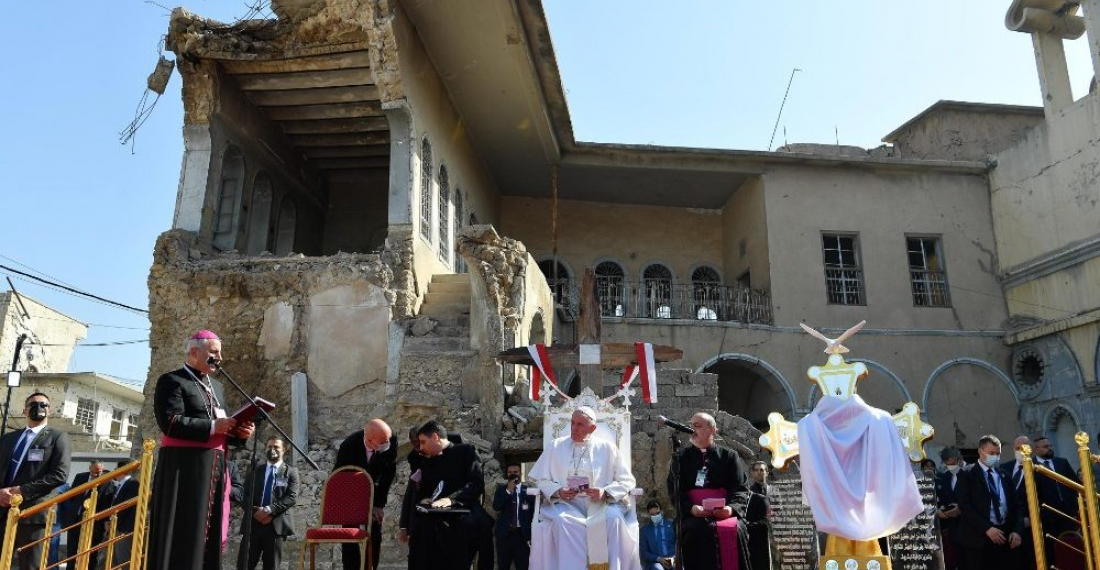On his third and last day of his historic visit to Iraq, the leader of the Catholic Church, Pope Francis on Sunday morning, arrived at the Hosh al-Bieaa centre in Mosul where he prayed, amidst the ruins of war and along with the people of Iraq, for all the victims of war in the country and throughout the Middle East. The Pope reflected,
If God is the God of life – for so He is – then it is wrong for us to kill our brothers and sisters in His Name.
If God is the God of peace – for so He is – then it is wrong for us to wage war in His Name.
If God is the God of love – for so He is – then it is wrong for us to hate our brothers and sisters.
Then the Holy Father invited all those present, whether near or far, to "join in praying for all the victims of war," and for ourselves. "May all of us," he added, "whatever our religious tradition, live in harmony and peace, conscious that in the eyes of God, we are all brothers and sisters."
At the start of the third day of his visit to Iraq, Pope Francis flew from Baghdad to Erbil where, upon his arrival, he was welcomed by the President, the Prime Minister of the autonomous region of Iraqi Kurdistan, as well as civil and religious authorities.
The Pope then met with the President of the autonomous region of Iraqi Kurdistan, Nechirvan Barzani, and the Prime Minister, Masrour Barzani at the Presidential VIP Lounge of the airport.
After Erbil and Mosul the Pope travelled to Qaraqosh where he will visit the faithful at the Church of the Immaculate Conception. Afterwards, he will return to Erbil, where at 4:00 PM he will celebrate Holy Mass at the "Franso Hariri" stadium. The Pope will then travel back to Baghdad.
The visit to Erbil is of particular significance since the city has become home to thousands of refugees, mostly from Qaraqosh and Mosul, who fled for their lives during the rule of the so-called Islamic State. The city has welcomed an estimated 540,000 Iraqi refugees in addition to other Syrian refugees into camps in the region.
Officially recognized with the introduction of its constitution which was adopted in 2005, the autonomous region of Iraqi Kurdistan, located in the northeast of Iraq is comprised of four governorates of Dohuk (Dihok), Erbil (Hewlêr), Halabja (Helebce) and Sulaymaniyah (Silêmanî). The autonomous region is bordered in the east by Iran, in the north by Turkey and in the west by Syria.






